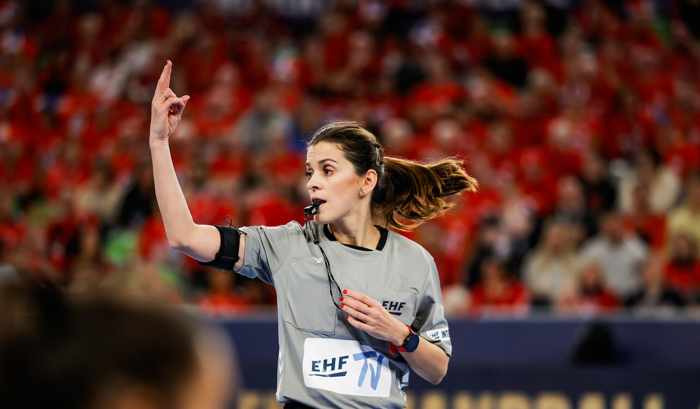An analysis of KINEXON performance data carried out by FITGOOD PRO physiotherapist María Müller-Thyssen for the EHF showed that on average, each referee covered a distance of 4.5km per match at the EHF EURO.
Out of a total combined time on court of 92 hours, referees spent 59.5 per cent of their time walking, 19.5 per cent jogging, and 8.4 per cent running. In total referees covered a combined distance of 410km, with 32.7 per cent of that walking, 28 per cent jogging, and 23.3 per cent running.
Some 4 per cent of referees' time was spent in high intensity running or sprinting, accounting for about 15 per cent of the distance covered. Data showed each referee accelerated around 35 times per match and decelerated around 13 times per match; the maximum acceleration was 5.1 metres per second and the maximum deceleration was 3.6 m/s.

The average perceived effort per referee was "sort of hard", with the group rating their mental effort as 4.2 out of 10 and physical effort as 4.6 out of 10.
Müller-Thyssen said the data would build understanding of the physical demands on referees, allowing training plans to better prepare them for their roles. Although referees spend a minority of their time sprinting or running, this was where the majority of injuries occur and it was necessary for referees to focus their training in these areas to tolerate them better, Müller-Thyssen added.

